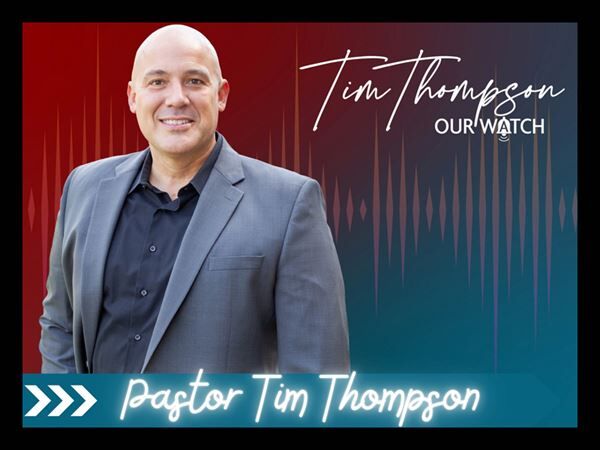Gilead to Spotlight New Virology Data Across HIV, Viral Hepatitis and Respiratory Diseases at IDWeek 2025
News > Health News

Audio By Carbonatix
5:30 AM on Sunday, October 19
The Associated Press
FOSTER CITY, Calif.--(BUSINESS WIRE)--Oct 19, 2025--
Gilead Sciences, Inc. (Nasdaq: GILD) will present new findings from its antiviral research and development programs at IDWeek, taking place October 19-22 in Atlanta, GA. Data from 34 presentations across HIV, respiratory viruses, viral hepatitis, and viruses of pandemic potential including six oral presentations underscore Gilead’s leadership in advancing antiviral science and its ongoing efforts to bring forward innovative solutions for people and communities most affected by infectious diseases.
“At IDWeek 2025, we look forward to presenting new data that reflect our ongoing commitment to developing transformational medicines for hepatitis, as well as HIV prevention and treatment, and to expanding that goal to respiratory and other viruses causing serious disease,” said Jared Baeten, MD, PhD, Senior Vice President, Virology Therapeutic Area Head, Gilead Sciences. “These studies highlight the strength and depth of our antiviral portfolio and expanding pipeline, and our focus on person-centered innovation to help address the diverse and evolving needs of people and communities affected by serious viral diseases in the U.S. and around the world.”
HIV Prevention Research
New pivotal PURPOSE 1 ( NCT04994509 ) and PURPOSE 2 ( NCT04925752 ) data provided further insight into the safety of twice-yearly Yeztugo ® (lenacapavir – or LEN) for pre-exposure prophylaxis (PrEP). Sub-analyses among PURPOSE 1 trial participants using progestin-type long-acting (LA) hormonal contraceptives (implants or injections) and PURPOSE 2 trial participants using gender-affirming hormone therapy (GAHT) showed no clinically significant drug-drug interactions between Yeztugo and these commonly-used products.
Findings from PURPOSE 2 also assessed Yeztugo adherence and safety among individuals who reported using stimulants and opioids. These data – from the most gender-diverse HIV prevention trial to date – underscore Yeztugo’s potential as an inclusive PrEP option for populations disproportionately affected by substance use, which can influence adherence.
HIV Treatment Research
As part of Gilead’s ongoing mission to help end the HIV epidemic through innovation, partnership, and equitable access, new data presented at IDWeek underscore the company’s deep commitment to delivering person-centered solutions that meet the evolving needs of people living with HIV. These include new findings that further reinforce the strong clinical profile of Biktarvy ® (bictegravir/emtricitabine/tenofovir alafenamide, B/F/TAF) as a leading standard of care for people with HIV, with data showing greater patient preference for Biktarvy over intramuscular cabotegravir + rilpivirine (IM CAB+RPV).
- In a 12-week interim analysis of the Phase 4 EMPOWER study ( NCT06104306 ), individuals who switched from IM CAB+RPV to once-daily Biktarvy maintained viral suppression with no treatment-related serious adverse events and reported an increase in treatment satisfaction scores, citing higher satisfaction with side effects of their treatment.
Other treatment data include:
- Complementary findings from a large, multicountry HIV treatment survey (Canada, Mexico, U.S.) highlighted that while most people on antiretroviral therapy report satisfaction with durability, safety, and tolerability, a substantial proportion delay initiating or re-engaging in treatment due to fear of side effects, needing time to accept their diagnosis, or physician guidance.
- An analysis of IQVIA data revealed persistent geographic disparities in HIV specialist availability, with the U.S. requiring an additional 1,565 providers to meet UNAIDS’ 90-90-90 targets, particularly in the South where shortages are most acute. Achieving these targets – which call for 90% of people with HIV to be diagnosed, 90% of those diagnosed to receive treatment, and 90% of those treated to achieve viral suppression – will depend on addressing these gaps. These findings highlight the need for equitable access to care alongside therapeutic innovation.
Respiratory Viruses / COVID-19 Research
Gilead will present a comprehensive set of data across respiratory viruses, emphasizing the needs of populations most vulnerable to SARS-CoV-2 and respiratory syncytial virus (RSV). Key findings include:
- New analyses of Veklury ® (remdesivir) from the Phase 3 REDPINE ( NCT04745351 ) study, which investigated viral load dynamics in individuals hospitalized with COVID-19 who have severely impaired renal function or have undergone solid organ transplantation – two groups at elevated risk for prolonged infection.
- Complementary real-world evidence will further illuminate treatment patterns among older adults with compromised health and immunocompromised individuals hospitalized with COVID-19 in the U.S., highlighting persistent gaps in care and areas of unmet needs.
Overview of Scientific Presentations
HIV Prevention Research | |
Presentation 392 | Favorable Adherence and Safety of Twice-Yearly Subcutaneous Lenacapavir for PrEP Among PURPOSE 2 Participants Who Used Substances |
Presentation 390 | Lenacapavir Adherence and Effectiveness Over 2 Years of Use in the OPERA Cohort |
P-299 | No Clinically Significant Drug-Drug Interactions Between Lenacapavir and Hormonal Contraceptives in PURPOSE 1 |
P-305 | No Clinically Significant Drug-Drug Interactions with Co-administration of Feminizing or Masculinizing Hormone Therapy and Twice-yearly Lenacapavir PrEP in Gender-Diverse Persons |
P-382 | PrEP Utilization Patterns and Indications in a Cohort of HIV-Negative Individuals |
P-326 | Barriers to Oral HIV Pre-Exposure Prophylaxis (PrEP) Perceived by Those Receiving an Initial Prescription: US Survey Analysis |
P-287 | Real-World Sexually Transmitted Infection (STI) Testing Patterns Among Individuals Using PrEP for HIV-1 Prevention in the United States |
HIV Treatment Research | |
P-357 | Geographic Variations of HIV Specialist Shortages: An Observational Study to Support the 90-90-90 HIV Treatment Goals in the US |
P-382 | Characteristics and Outcomes of People with HIV (PWH) with Suboptimal Adherence on B/F/TAF or Dolutegravir Single-Tablet Regimens (STRs) |
P-386 | A Phase 4 Study to Evaluate the Safety and Efficacy of Oral B/F/TAF After Discontinuing Injectable CAB + RPV |
P-387 | Evaluation of Treatment Satisfaction and Experiences Among People With HIV When Switching to Bictegravir/Emtricitabine/Tenofovir Alafenamide From Cabotegravir + Rilpivirine: Results From the Phase 4 EMPOWER Study |
P-390 | Persistence and Adherence of PWH and Mental Health Disorder Diagnosis who Restart Antiretroviral Therapy (ART) |
P-391 | Impact of Rapid Antiretroviral Therapy Initiation on Retention in Care and Viral Suppression in an urban HIV clinic in Louisville, Kentucky |
P-393 | Treatment Switch among Medicare-insured People with HIV and Gaps in Care |
P-394 | Antiretroviral Therapy Persistence Following a Change or Restart in Regimen Among People with HIV |
P-2034 | Evaluation of Implementing Text-Messaging Based Medication Reminders to Improve Adherence to Antiretrovirals in People Living with HIV |
P-2043 | Improving Access and Adherence to Antiretroviral Therapy Through Coordinated Outreach and Care Linkage Model: A Collaborative Program Evaluation |
P-2071 | Reaching the Hard-to-Reach ACCELERATE Model of HIV Care: Telehealth, Rapid Restart, Follow-up |
P-2084 | HIV Viewpoints: Survey on the Experiences of People Living with HIV in North America |
Respiratory, Hepatitis, and Pandemic Viruses | |
P-1276 | Remdesivir And Obeldesivir Retain Potent Activity Against SARS-CoV-2 Omicron Variants |
P-1625 | SARS-CoV-2 Viral Load Dynamics in Participants With Solid Organ Transplantation and Severely Reduced Kidney Function From the Remdesivir Phase 3 REDPINE Study Who Were Hospitalized for COVID-19 |
P-1632 | Effectiveness of Remdesivir in Patients With Underlying Hepatic or Renal Comorbidity Hospitalized For SARS-CoV-2 Infection |
P-661 | Treatment Patterns Observed Among Immunocompromised and Frail Hospitalized COVID-19 Patients in the US |
P-1232 | Dose Selection of Obeldesivir for Clinical Evaluation in Treatment of Adult Participants with Respiratory Syncytial Virus Infection |
P-1231 | A Phase 1 Open-label, Parallel-group, Single-dose Study to Evaluate the Pharmacokinetics and Safety of Obeldesivir in Participants with Normal Renal Function and Renal Impairment |
P-1169 | Obeldesivir and GS-441524 Antiviral Activity against L Protein Mutants in Respiratory Syncytial Virus (RSV) Minigenome and Recombinant Infectious Virus Systems |
P-686 | Evolving Patterns Of Testing For Respiratory Syncytial Virus In The United States: Who Is Getting Tested?
|
P-1166 | Obeldesivir Clinical Dose Projection for Marburg Virus Disease Post-Exposure Prophylaxis |
P-2195 | Influence of Nucleos(t)ide Analogue Use With Bulevirtide on Treatment Outcomes in Chronic Hepatitis Delta |
For more information about Gilead’s presence at IDWeek 2025, including a complete list of abstracts and their corresponding oral and poster sessions, please visit https://idweek.org/program/.
Lenacapavir for HIV prevention is not approved by any regulatory authority outside of U.S. or EU.
Please see below for U.S. Indication and Important Safety Information, including Boxed Warning, for Biktarvy and Yeztugo. Please also see below for the U.S. Indication and Important Safety Information for Veklury.
There is currently no cure for HIV or AIDS.
The use of obeldesivir is investigational and has not been determined to be safe or efficacious and is not approved by the FDA.
Bulevirtide 2 mg remains the only approved treatment for adults with chronic HDV and compensated liver disease in the European Economic Area (EEA), the UK, Canada, Australia and is not approved in the U.S. Bulevirtide 10 mg is an investigational product and is not approved anywhere.
About Lenacapavir
Lenacapavir is approved in multiple countries as pre-exposure prophylaxis (PrEP) to reduce the risk of sexually acquired HIV in adults and adolescents who are at risk of HIV acquisition. Lenacapavir is also approved in multiple countries for the treatment of multi-drug-resistant HIV in adults, in combination with other antiretrovirals.
The multi-stage mechanism of action of lenacapavir is distinguishable from other currently approved classes of antiviral agents. While most antivirals act on just one stage of viral replication, lenacapavir is designed to inhibit HIV at multiple stages of its lifecycle and has no known cross resistance exhibited in vitro to other existing drug classes.
Lenacapavir is being evaluated as a long-acting option in multiple ongoing and planned early and late-stage clinical studies in Gilead’s HIV prevention and treatment research program. Lenacapavir is being developed as a foundation for potential future HIV therapies with the goal of offering both long-acting oral and injectable options with several dosing frequencies, in combination or as a mono agent, that help address individual needs and preferences of people and communities affected by HIV. The journal Science named lenacapavir its 2024 “Breakthrough of the Year.”
About Biktarvy
Biktarvy is a complete HIV treatment that combines three powerful medicines to form the smallest 3-drug, integrase strand transfer inhibitor (INSTI)-based STR available, offering simple once-daily dosing with or without food, with a limited drug interaction potential and a high barrier to resistance. Biktarvy combines the novel, unboosted INSTI bictegravir, with the F/TAF backbone. Biktarvy is a complete STR and should not be taken with other HIV medicines.
About Veklury
Veklury (remdesivir) is a nucleotide analog prodrug invented by Gilead, building on more than a decade of the company’s antiviral research. Veklury is the antiviral standard of care for the treatment of hospitalized patients with COVID-19 and is a recommended treatment for reducing disease progression in non-hospitalized patients at high risk of disease progression. Veklury is the only antiviral studied in hospitalized COVID-19 patients in clinical trials and large real-world analyses that has demonstrated reduced time to recovery, as well as disease progression, mortality and readmission.
Veklury directly inhibits viral replication inside of the cell by targeting the SARS-CoV-2 viral RNA polymerase. Based on in vitro analyses, Veklury retains antiviral activity against recent Omicron subvariants of concern, including XBF, XBB.1.16, FL.22, E.G.5.1 and BA.2.86. Veklury continues to be evaluated against emerging variants of interest and concern.
Veklury is approved in more than 50 countries worldwide. To date, Veklury and generic remdesivir have been made available to approximately 14.5 million patients around the world, including more than 8.1 million people in middle- and low-income countries through Gilead’s voluntary licensing program.
U.S. Indication for Yeztugo
Yeztugo (lenacapavir) injection, 463.5 mg/1.5 mL, is indicated for pre‑exposure prophylaxis (PrEP) to reduce the risk of sexually acquired HIV-1 in adults and adolescents ( ≥ 35kg) who are at risk for HIV-1 acquisition. Individuals must have a negative HIV-1 test prior to initiating Yeztugo.
U.S. Important Safety Information for Yeztugo
BOXED WARNING: RISK OF DRUG RESISTANCE WITH USE OF YEZTUGO IN UNDIAGNOSED HIV-1 INFECTION
- Individuals must be tested for HIV-1 infection prior to initiating Yeztugo, and with each subsequent injection of Yeztugo, using a test approved or cleared by the FDA for the diagnosis of acute or primary HIV-1 infection. Drug-resistant HIV-1 variants have been identified with use of Yeztugo by individuals with undiagnosed HIV-1 infection. Do not initiate Yeztugo unless negative infection status is confirmed. Individuals who acquire HIV-1 while receiving Yeztugo must transition to a complete HIV-1 treatment regimen.
Contraindications
- Yeztugo is contraindicated in individuals with unknown or positive HIV-1 status.
Warnings and precautions
- Comprehensive risk management:
- Use Yeztugo to reduce the risk of HIV-1 acquisition as part of a comprehensive prevention strategy including adherence to the administration schedule and safer sex practices, including condoms, to reduce the risk of sexually transmitted infections (STIs).
- HIV-1 acquisition risk includes behavioral, biological, or epidemiologic factors including, but not limited to, condomless sex, past or present STIs, self-identified HIV risk, having sexual partners of unknown HIV-1 viremic status, or sexual activity in a high-prevalence area or network. Counsel individuals on the use of other prevention methods to help reduce their risk.
- Use Yeztugo only in individuals confirmed to be HIV-1 negative. Evaluate for current or recent signs or symptoms consistent with HIV-1 infection. Confirm HIV-1 negative status prior to initiating, prior to each subsequent injection, and as clinically appropriate.
- Potential risk of resistance:
- There is a potential risk of developing resistance to Yeztugo if an individual acquires HIV-1 before or when receiving Yeztugo, or following discontinuation. HIV- 1 resistance substitutions may emerge in individuals with undiagnosed HIV-1 infection taking only Yeztugo, because Yeztugo alone is not a complete regimen for HIV-1 treatment.
- To minimize this risk, it is essential to test before each injection and additionally as clinically appropriate. Individuals confirmed to have HIV-1 must immediately begin a complete HIV-1 treatment regimen.
- Alternative forms of PrEP should be considered after discontinuation of Yeztugo for those who are at continuing risk of HIV-1 acquisition and should be initiated within 28 weeks of the last Yeztugo injection.
- Long-acting properties and potential associated risks:
- Residual concentrations of Yeztugo may remain in systemic circulation for up to 12 months or longer after the last injection.
- Select individuals who agree to the required injection dosing schedule because nonadherence or missed doses could lead to HIV-1 acquisition and development of resistance.
- Serious injection site reactions: Improper administration (intradermal injection) has been associated with serious injection site reactions, including necrosis and ulcer. Only administer Yeztugo subcutaneously.
Adverse reactions
- Most common adverse reactions (≥5%) in Yeztugo clinical trials were injection site reactions, headache, and nausea.
Drug interactions
- Strong or moderate CYP3A inducers may significantly decrease Yeztugo concentrations. Dosage modifications are recommended when initiating these inducers.
- It is not recommended to use Yeztugo with combined P-gp, UGT1A1, and strong CYP3A inhibitors.
- Coadministration of Yeztugo with sensitive substrates of CYP3A or P-gp may increase their concentrations and result in the increased risk of their adverse events. Yeztugo may increase the exposure of drugs primarily metabolized by CYP3A initiated within 9 months after the last injection of Yeztugo.
Dosage and administration
- HIV screening: Test for HIV-1 infection prior to initiating, prior to each subsequent injection, and as clinically appropriate using an approved or cleared test for the diagnosis of acute or primary HIV-1 infection.
- Dosage: Initiation dosing (injections and tablets) followed by once-every-6-months continuation injection dosing. Tablets may be taken with or without food.
- Initiation: Day 1: 927 mg by subcutaneous injection (2 x 1.5-mL injections) and 600 mg orally (2 x 300-mg tablets). Day 2: 600 mg orally.
- Continuation: 927 mg by subcutaneous injection every 6 months (26 weeks) from date of last injection ±2 weeks.
- Anticipated delayed injections: If scheduled 6-month injection is anticipated to be delayed by more than 2 weeks, Yeztugo tablets may be taken on an interim basis (for up to 6 months) until injections resume. Dosage is 300 mg orally (1 x 300-mg tablet) once every 7 days. Resume continuation injections within 7 days of the last oral dose.
- Missed injections: If more than 28 weeks have elapsed since the last injection and Yeztugo tablets have not been taken, restart with initiation dosing if clinically appropriate.
- Dosage modifications of Yeztugo are recommended when initiating with strong or moderate CYP3A inducers. Consult the full Prescribing Information for recommendations.
U.S. Indication for Biktarvy
BIKTARVY is indicated as a complete regimen for the treatment of HIV-1 infection in adult and pediatric patients weighing ≥14 kg with no antiretroviral treatment history; or with an ARV treatment history and not virologically suppressed, with no known or suspected substitutions associated with resistance to the integrase strand inhibitor class, emtricitabine, or tenofovir; or to replace the current ARV regimen in those who are virologically suppressed (HIV-1 RNA <50 copies per mL) on a stable ARV regimen with no known or suspected substitutions associated with resistance to bictegravir or tenofovir.
U.S. Important Safety Information for Biktarvy
BOXED WARNING: POST TREATMENT ACUTE EXACERBATION OF HEPATITIS B
- Severe acute exacerbations of hepatitis B have been reported in patients who are coinfected with HIV-1 and HBV and have discontinued products containing emtricitabine (FTC) and/or tenofovir disoproxil fumarate (TDF), and may occur with discontinuation of BIKTARVY. Closely monitor hepatic function with both clinical and laboratory follow-up for at least several months in patients who are coinfected with HIV-1 and HBV and discontinue BIKTARVY. If appropriate, anti-hepatitis B therapy may be warranted.
Contraindications
- Coadministration: Do not use BIKTARVY with dofetilide or rifampin.
Warnings and precautions
- Drug interactions: See Contraindications and Drug Interactions sections. Consider the potential for drug interactions prior to and during BIKTARVY therapy and monitor for adverse reactions.
- Immune reconstitution syndrome, including the occurrence of autoimmune disorders with variable time to onset, has been reported.
- New onset or worsening renal impairment: Postmarketing cases of renal impairment, including acute renal failure, proximal renal tubulopathy (PRT), and Fanconi syndrome have been reported with tenofovir alafenamide (TAF)–containing products. Do not initiate BIKTARVY in patients with estimated creatinine clearance (CrCl) <30 mL/min except in virologically suppressed adults <15 mL/min who are receiving chronic hemodialysis. Patients with impaired renal function and/or taking nephrotoxic agents (including NSAIDs) are at increased risk of renal-related adverse reactions. Discontinue BIKTARVY in patients who develop clinically significant decreases in renal function or evidence of Fanconi syndrome.
Renal monitoring: Prior to or when initiating BIKTARVY and during therapy, assess serum creatinine, CrCl, urine glucose, and urine protein in all patients as clinically appropriate. In patients with chronic kidney disease, assess serum phosphorus. - Lactic acidosis and severe hepatomegaly with steatosis: Fatal cases have been reported with the use of nucleoside analogs, including FTC and TDF. Discontinue BIKTARVY if clinical or laboratory findings suggestive of lactic acidosis or pronounced hepatotoxicity develop, including hepatomegaly and steatosis in the absence of marked transaminase elevations.
Adverse reactions
- Most common adverse reactions (incidence ≥5%; all grades) in clinical studies through week 144 were diarrhea (6%), nausea (6%), and headache (5%).
Drug interactions
- Prescribing information: Consult the full prescribing information for BIKTARVY for more information on Contraindications, Warnings, and potentially significant drug interactions, including clinical comments.
- Enzymes/transporters: Drugs that induce P-gp or induce both CYP3A and UGT1A1 can substantially decrease the concentration of components of BIKTARVY. Drugs that inhibit P-gp, BCRP, or inhibit both CYP3A and UGT1A1 may significantly increase the concentrations of components of BIKTARVY. BIKTARVY can increase the concentration of drugs that are substrates of OCT2 or MATE1.
- Drugs affecting renal function: Coadministration of BIKTARVY with drugs that reduce renal function or compete for active tubular secretion may increase concentrations of FTC and tenofovir and the risk of adverse reactions.
Dosage and administration
- Dosage: Adult and pediatric patients weighing ≥25 kg: 1 tablet containing 50 mg bictegravir (BIC), 200 mg emtricitabine (FTC), and 25 mg tenofovir alafenamide (TAF) taken once daily with or without food. Pediatric patients weighing ≥14 kg to <25 kg: 1 tablet containing 30 mg BIC, 120 mg FTC, and 15 mg TAF taken once daily with or without food. For children unable to swallow a whole tablet, the tablet can be split and each part taken separately as long as all parts are ingested within approximately 10 minutes.
- Renal impairment: For patients weighing ≥25 kg, not recommended in patients with CrCl 15 to <30 mL/min, or <15 mL/min who are not receiving chronic hemodialysis, or <15 mL/min who are receiving chronic hemodialysis and have no antiretroviral treatment history. For patients weighing ≥14 kg to <25 kg, not recommended in patients with CrCl <30 mL/min.
- Hepatic impairment: Not recommended in patients with severe hepatic impairment.
- Prior to or when initiating: Test patients for HBV infection.
- Prior to or when initiating, and during treatment: As clinically appropriate, assess serum creatinine, CrCl, urine glucose, and urine protein in all patients. In patients with chronic kidney disease, assess serum phosphorus.
Pregnancy and lactation
- Pregnancy: BIKTARVY is recommended in pregnant individuals who are virologically suppressed on a stable ARV regimen with no known substitutions associated with resistance to any of the individual components of BIKTARVY. Lower plasma exposures of BIKTARVY were observed during pregnancy; therefore, viral load should be monitored closely during pregnancy.
- Lactation: Individuals infected with HIV-1 should be informed of the potential risks of breastfeeding.
U.S. Indication for Veklury
Veklury (remdesivir 100 mg for injection) is indicated for the treatment of COVID-19 in adults and pediatric patients (weighing ≥1.5 kg) who are:
- Hospitalized, or
- Not hospitalized and have mild-to-moderate COVID-19 and are at high risk for progression to severe COVID-19, including hospitalization or death.
For more information, please see the U.S. full Prescribing Information available at www.gilead.com.
U.S. Important Safety Information for Veklury
Contraindication
Veklury is contraindicated in patients with a history of clinically significant hypersensitivity reactions to Veklury or any of its components.
Warnings and precautions
- Hypersensitivity, including infusion-related and anaphylactic reactions: Hypersensitivity, including infusion-related and anaphylactic reactions, has been observed during and following administration of Veklury; most occurred within one hour. Monitor patients during infusion and observe for at least one hour after infusion is complete for signs and symptoms of hypersensitivity as clinically appropriate. Symptoms may include hypotension, hypertension, tachycardia, bradycardia, hypoxia, fever, dyspnea, wheezing, angioedema, rash, nausea, diaphoresis, and shivering. Slower infusion rates (maximum infusion time up to 120 minutes) can potentially prevent these reactions. If a severe infusion-related hypersensitivity reaction occurs, immediately discontinue Veklury and initiate appropriate treatment (see Contraindications).
- Increased risk of transaminase elevations: Transaminase elevations have been observed in healthy volunteers and in patients with COVID-19 who received Veklury; these elevations have also been reported as a clinical feature of COVID-19. Perform hepatic laboratory testing in all patients (see Dosage and administration). Consider discontinuing Veklury if ALT levels increase to >10x ULN. Discontinue Veklury if ALT elevation is accompanied by signs or symptoms of liver inflammation.
- Risk of reduced antiviral activity when coadministered with chloroquine or hydroxychloroquine: Coadministration of Veklury with chloroquine phosphate or hydroxychloroquine sulfate is not recommended based on data from cell culture experiments, demonstrating potential antagonism, which may lead to a decrease in antiviral activity of Veklury.
Adverse reactions
- The most common adverse reaction (≥5% all grades) was nausea.
- The most common lab abnormalities (≥5% all grades) were increases in ALT and AST.
Drug interactions
- Drug interaction trials of Veklury and other concomitant medications have not been conducted in humans.
Dosage and administration
- Administration should take place under conditions where management of severe hypersensitivity reactions, such as anaphylaxis, is possible.
- Treatment duration:
- For patients who are hospitalized, Veklury should be initiated as soon as possible after diagnosis of symptomatic COVID-19.
- For patients who are hospitalized and do not require invasive mechanical ventilation and/or ECMO, the recommended treatment duration is 5 days. If a patient does not demonstrate clinical improvement, treatment may be extended up to 5 additional days, for a total treatment duration of up to 10 days.
- For patients who are hospitalized and require invasive mechanical ventilation and/or ECMO, the recommended total treatment duration is 10 days.
- For patients who are not hospitalized, diagnosed with mild-to-moderate COVID-19, and are at high risk for progression to severe COVID-19, including hospitalization or death, the recommended total treatment duration is 3 days. Veklury should be initiated as soon as possible after diagnosis of symptomatic COVID-19 and within 7 days of symptom onset for outpatient use.
- Testing prior to and during treatment: Perform hepatic laboratory, and prothrombin time testing prior to initiating Veklury and during use as clinically appropriate.
- Renal impairment: No dose adjustment of Veklury is recommended in patients with any degree of renal impairment, including patients on dialysis. Veklury may be administered without regard to the timing of dialysis.
Pregnancy and lactation
- Pregnancy: A pregnancy registry has been established for Veklury. Available clinical trial data for Veklury in pregnant women have not identified a drug-associated risk of major birth defects, miscarriage, or adverse maternal or fetal outcomes following second- and third-trimester exposure. There are insufficient data to evaluate the risk of Veklury exposure during the first trimester. Maternal and fetal risks are associated with untreated COVID-19 in pregnancy.
- Lactation: Veklury can pass into breast milk. The developmental and health benefits of breastfeeding should be considered along with the mother’s clinical need for Veklury and any potential adverse effects on the breastfed child from Veklury or from an underlying maternal condition. Breastfeeding individuals with COVID-19 should follow practices according to clinical guidelines to avoid exposing the infant to COVID-19.
About Gilead Sciences
Gilead Sciences, Inc. is a biopharmaceutical company that has pursued and achieved breakthroughs in medicine for more than three decades, with the goal of creating a healthier world for all people. The company is committed to advancing innovative medicines to prevent and treat life-threatening diseases, including HIV, viral hepatitis, COVID-19, cancer and inflammation. Gilead operates in more than 35 countries worldwide, with headquarters in Foster City, California.
Forward-Looking Statements
This press release includes forward-looking statements within the meaning of the Private Securities Litigation Reform Act of 1995 that are subject to risks, uncertainties and other factors, including Gilead’s ability to initiate, progress or complete clinical trials within currently anticipated timelines or at all, and the possibility of unfavorable results from ongoing or additional clinical trials, including those involving Biktarvy, Veklury, Yeztugo (lenacapavir), bulevirtide, obeldesivir (such as the EMPOWER, PURPOSE 1, PURPOSE 2 and REDPINE trials); uncertainties relating to regulatory applications and related filing and approval timelines, including potential applications for indications currently under evaluation, and the risk that any regulatory approvals, if granted, may be subject to significant limitations on use or subject to withdrawal or other adverse actions by the applicable regulatory authority; the possibility that Gilead may make a strategic decision to discontinue development of programs for indications currently under evaluation and, as a result, such programs may never be successfully commercialized for such indications; and any assumptions underlying any of the foregoing. These and other risks, uncertainties and factors are described in detail in Gilead’s Quarterly Report on Form 10-Q for the quarter ended June 30, 2025, as filed with the U.S. Securities and Exchange Commission. These risks, uncertainties and other factors could cause actual results to differ materially from those referred to in the forward-looking statements. All statements other than statements of historical fact are statements that could be deemed forward-looking statements. The reader is cautioned that any such forward-looking statements are not guarantees of future performance and involve risks and uncertainties and is cautioned not to place undue reliance on these forward-looking statements. All forward-looking statements are based on information currently available to Gilead, and Gilead assumes no obligation and disclaims any intent to update any such forward-looking statements.
Biktarvy, Yeztugo, Veklury, Gilead, and the Gilead logo are trademarks of Gilead Sciences, Inc., or its related companies. All other trademarks are the property of their respective owner(s).
Please see U.S. fullPrescribing Informationfor Biktarvy, including BOXED WARNING, U.S. full Prescribing Information for Yeztugo, including BOXED WARNING, and U.S. fullPrescribing Informationfor Veklury, available atwww.gilead.com.
For more information about Gilead, please visit the company’s website atwww.gilead.com, follow Gilead on X/Twitter (@Gilead Sciences) and LinkedIn (@Gilead-Sciences).
View source version on businesswire.com:https://www.businesswire.com/news/home/20251019567076/en/
CONTACT: Blair Baumwell, Media
[email protected] Ross, Investors
KEYWORD: UNITED STATES NORTH AMERICA CALIFORNIA
INDUSTRY KEYWORD: AIDS HEALTH INFECTIOUS DISEASES HOSPITALS PHARMACEUTICAL BIOTECHNOLOGY
SOURCE: Gilead Sciences, Inc.
Copyright Business Wire 2025.
PUB: 10/19/2025 08:30 AM/DISC: 10/19/2025 08:29 AM
http://www.businesswire.com/news/home/20251019567076/en







